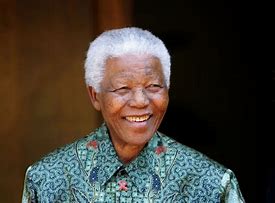
Nelson Mandela, conceived Rolihlahla Mandela on July 18, 1918, in the rustic town of Mvezo, South Africa, is a figure scratched profoundly into the chronicles of worldwide history. Most popular for his steadfast battle against politically-sanctioned racial segregation, his administration, and his way of thinking of compromise, Mandela’s biography typifies strength, trust, and the human ability to impact change even in the direst conditions.
Early Life and Education
Mandela’s life started modestly in the Thembu regal family. His given name, Rolihlahla, signifying “pulling the part of a tree” or “miscreant,” foreshadowed his future job as a disruptor of a severe framework. He experienced childhood in Qunu, where his initial training in mission schools acquainted him with Western-style schooling. It was here that an educator gave him the English name Nelson, a typical work on during that period.
Mandela later went to the renowned University of Stronghold Hare, where he met peers who might likewise add to South Africa’s freedom battle. In any case, serious areas of strength for him nature before long caused erosion; he was removed for joining an understudy fight. This developmental period laid the foundation for his profound obligation to equity and equity.
The Battle Against Apartheid
By the 1940s, Mandela had moved to Johannesburg, where he saw firsthand the dehumanizing arrangement of apartheid, an administration strategy organizing racial isolation and racial domination. Enlisting in the African Public Congress (ANC) in 1944, Mandela immediately rose through the positions, helping to establish the ANC Youth League, which expected to stimulate the development with a more extreme methodology.
Mandela’s responsibility was unflinching. As politically-sanctioned racial segregation regulations fixed, he led missions of rebellion. In 1961, following quite a while of serene fights demonstrated pointless, he helped to establish Umkhonto we Sizwe (“The Lance of the Country”), the ANC’s outfitted wing, pushing damage against the politically-sanctioned racial segregation system. His administration grabbed the eye of the specialists, prompting his capture in 1962 and resulting preliminary at Rivonia, where he conveyed his now-famous words:
“I have strolled that difficult experience to opportunity. I have done whatever it takes not to vacillate; I have made stumbles en route. In any case, I have found the mysterious that in the wake of climbing an extraordinary slope, one just observes that there are a lot more slopes to climb.”
Mandela and his confidants were condemned to life detainment, and he was shipped off Robben Island, where he would burn through 18 of his 27 years in imprisonment.

Detainment and Worldwide Solidarity
Mandela’s detainment turned into an energizing point for hostile to politically-sanctioned racial segregation activists around the world. Regardless of merciless circumstances, he would not think twice about beliefs, frequently haggling with politically-sanctioned racial segregation pioneers yet standing firm on the key requirement for equity and a vote based system.
During these years, Mandela’s persona rose above South Africa’s boundaries. While detained, Mandela propelled the world to see that mistreatment, no matter what its structure, was inadmissible. The media, especially compelling distributions like the New York Times, offered his predicament worldwide consideration, alluding to him as Madiba, a term of regard got from his Xhosa tribe name.
The Nelson Mandela Effect
One inquisitive part of Mandela’s inheritance is the Mandela Effect, a term begat a lot later, alluding to boundless bogus recollections. It started from the mixed up conviction among certain individuals that Mandela had passed on in jail during the 1980s. This peculiarity of aggregate misremembering highlights the significant effect of Mandela’s imagery; for the majority, his potential passing connoted the demise of expectation for South Africa.
Amusingly, Mandela’s genuine delivery on February 11, 1990, stamped perhaps of the most celebrated crossroads in current history, broadcast live around the world. The strong pictures of Mandela strolling free, inseparably with his significant other, Winnie Mandela, implied the persevering through soul of obstruction.
Mandela’s Administration and Theory of Forgiveness
In 1994, South Africa held its first multi-racial decisions. Nelson Mandela was chosen the nation’s most memorable dark president, a position he held until 1999. His organization stressed compromise, sending off the Truth and Compromise Commission, led by Diocese supervisor Desmond Tutu, to recuperate the country by tending to the violations of politically-sanctioned racial segregation.
Mandela’s capacity to pardon his previous oppressors became unbelievable. At the point when he said,
“Disdain resembles drinking toxic substance and afterward trusting it will kill your enemies,”
it wasn’t simple way of talking — it was a directing way of thinking. His administration directed South Africa away from nationwide conflict, procuring him worldwide reverence.
Later Life and Worldwide Recognition
Mandela decided not to run briefly term, leaving office in 1999 yet staying a worldwide backer for harmony, equity, and HIV/Helps mindfulness. He won more than 250 awards, remembering the Nobel Harmony Prize for 1993, which he imparted to FW de Klerk, the last politically-sanctioned racial segregation time leader of South Africa.
Mandela turned into a worldwide senior legislator, proceeding to rouse pioneers and residents overall with his modesty and resolve. Among his getting through statements, maybe none reverberate more than:
“I’m not a holy person, except if you consider a holy person a heathen who keeps on trying.”
When Did Nelson Mandela Die?
The world grieved the death of Nelson Mandela on December 5, 2013. He kicked the bucket at 95 years old at his home in Johannesburg. South Africans and world pioneers honored Madiba through a state memorial service that mirrored his transcending commitments to mankind. Previous U.S. President Barack Obama portrayed Mandela as “a monster of history” during his moving tribute.
Inheritance: Past Madiba
Mandela’s inheritance keeps on sparkling. In South Africa, Mandela Day is commended on July 18 to move people to have an effect in their networks. Sculptures, books, movies, and statements deify his life’s process.
While the world respects Nelson Mandela as a legislator, political dissident, and compassionate, South Africans hold him dearest as Madiba, the dad of their country. His life advises us that the way to equity might be long, yet it’s rarely unimaginable.

